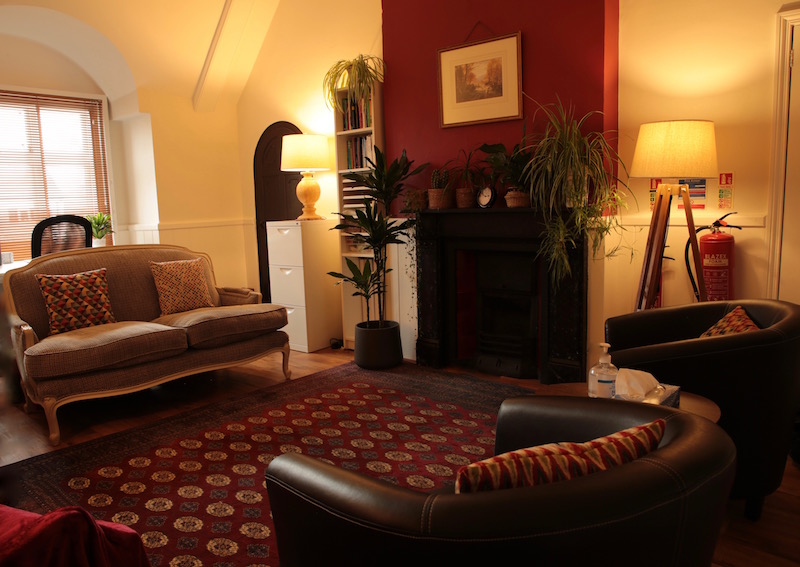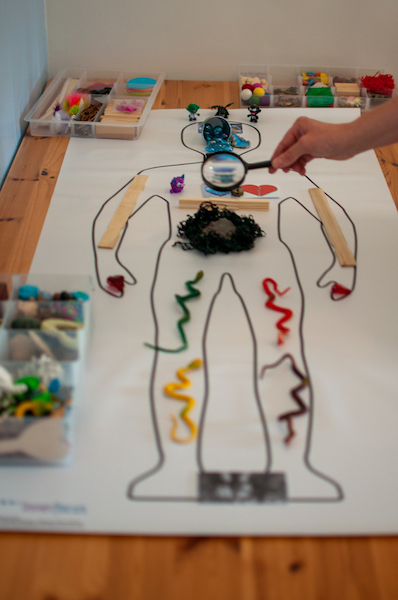Content



What is Focusing-Oriented Psychotherapy?
Focusing-Oriented Psychotherapy comes under the umbrella of the Person-Centred Approach .
A central aspect of this model of therapy is that the client is respected as the expert on themselves, and that on some level (which may not be in awareness) they know who they are, what they want and what they need for their growth and wellbeing.
In Focusing-Oriented Therapy the therapeutic relationship is an important aspect of the therapeutic process. You can expect to be listened to with warmth, empathy and acceptance, and to feel contained and safe.
Focusing-Oriented Therapy is evidence based. Research has shown it to correlate with successful therapy outcomes.
Book A Free Initial Consultation
All new clients can book a free 30 minute no-obilgation consultation. This is offered from an ethical commitment to enable you to explore and find the right therapist for you without it being a costly process.
To book an appointment with Sara Bradly email sara@inner-focus.co.uk or call 07979 180170.

Gentle & Sensitive Therapeutic Process
Focusing-Oriented Psychotherapy is a gentle and sensitive therapeutic process which enables the client to connect and 'sense into' whatever problematic feeling or emotion becomes present to them during a session.
The client is guided to notice the feeling or emotion in their body and to stay with it, listening to it, giving it permission to be just as it is. This paying attention to feelings and emotions in the body enables them to open up, and fresh insight emerges from within.
This way of working is very powerful, enabling us to get to know different 'parts' of ourselves and the impact these parts have on our lives and wellbeing.
We all have a critical part which can wreak havoc on us, exacerbating symptoms of depression and anxiety; and we all have a child part which carries the wounds of childhood - perhaps feelings of powerlessness and insignificance.
Focusing is about giving attention to these often maligned or neglected parts, listening to what they need, and being kind to them.
Focusing can lead to significant shifts in self awareness, self-acceptance, and self-worth.

Evidence Based
Focusing-Oriented Psychotherapy was developed from a highly regarded, extensive research study in Person-Centred Counselling conducted by Carl Rogers and Eugene Gendlin in the 1950s and 60s.
The results showed that when a client naturally did what came to be called ‘Focusing’ the therapy had a successful outcome.
Further research conducted since then has reinforced the correlation between 'Focusing' in counselling sessions and successful therapy outcomes.
Focusing refers to the process of getting in touch with feelings and emotions as they are physically felt in the body, giving space and time to them, and attuning to them.

Client's Choice
At Inner Focus it is always the client's choice how they would like to use each session.
Inner Focus has two rooms available at every session for clients to use - one of these is a relaxing, calm, homely room that can help you feel at ease to talk about your problem/s. The other is a creative space where you can use creative resources such as art materials, sand tray or a body map to express a troubling situation and/ or your feelings and emotions.
Clients are welcome to keep to one room throughout their therapy or to chop and change as it suits their sense of what they need or want in the moment.
Online clients are welcome to come to sessions with paper and pens/pencils if working creatively is something that appeals to them.







We cannot change, we cannot move away from what we are, until we thoroughly accept what we are. Then change seems to come about almost unnoticed.
- Carl Rogers

A Catalyst For Change
Focusing-Oriented Psychotherapy can be an impressive catalyst for change, transforming your feelings towards yourself, towards others and towards your circumstances. It can enable you to live your life and make changes and decisions from a sense of knowing what is right for you.

Sara Bradly MBACP - Counsellor/ Psychotherapist
Sara holds an MA in Person-Centred Counselling and a Post-graduate Certificate in Focusing-Oriented Psychotherapy. She has over 10 years experience as a counsellor, and is a registered member of BACP (British Association for Counselling and Psychotherapy).
BACP is a professional body committed to high standards in counselling and psychotherapy, and the protection of the public.
By being a registered member of this organisation Sara adheres to an ethical framework for good practice in counselling and psychotherapy and to an accepted and approved code of conduct and accountability.
Sara attends regular clinical supervision and engages with a minimum of 30 hours of continued professional development each year.





